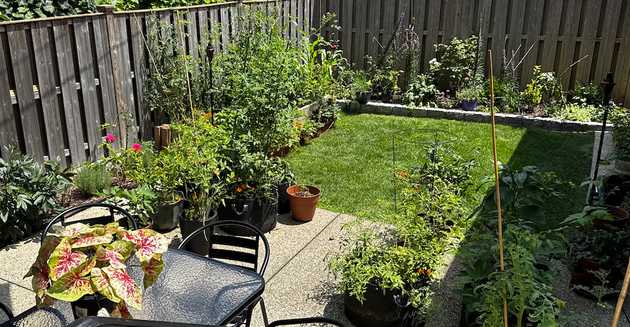Why Growing Your Own Food at Home Matters in 2025
The Importance of Sustainable Living
 As a new gardener, I've seen firsthand the benefits of growing my own food at home. It's not just about having a garden; it's about taking control of your health, the environment and your community. In this post, I'll share why growing your own food at home is more important than ever in 2025.
As a new gardener, I've seen firsthand the benefits of growing my own food at home. It's not just about having a garden; it's about taking control of your health, the environment and your community. In this post, I'll share why growing your own food at home is more important than ever in 2025.
What's the Big Deal?
In recent years, we've seen a growing awareness of the importance of sustainable living. With climate change, food insecurity and rising healthcare costs, it's never been more crucial to take charge of our food systems. Growing your own food at home can help you:
- Eat healthier: By controlling what goes into your garden, you can ensure that you're eating fresh, organic produce.
- Save money: Homegrown vegetables and fruits can save you up to 50% on your grocery bills. This may or may not wind up being the case after accounting for water, compost/fertilizer, etc. if you're purchasing these items. Making your own compost will help save you lots of money.
- Reduce carbon footprint: By growing your own food, you'll reduce the need for transportation and packaging.
- Support local communities: By growing your own food, you'll be supporting local farmers and promoting community self-sufficiency.
Small Spaces Don't Have to Mean Big Sacrifices
One of the biggest misconceptions about gardening is that it requires a lot of space. But with a little creativity, you can grow your own food in even the smallest spaces.
- Vertical gardening: Use trellises, arbors, or wall-mounted planters to grow vining plants like peas and cucumbers.
- Container gardening: Grow a variety of herbs, leafy greens and fruits in containers that can fit on your balcony or patio.
- Hydroponic gardening: Use a hydroponic system to grow crops in a small, water-efficient space.
Get Involved in Your Community
Growing your own food at home isn't just about personal benefits; it's also a way to connect with your community.
- Start a garden-sharing program: Share resources and expertise with neighbors to create a more sustainable food system.
- Attend community gardening events: Join local gardening groups and attend workshops to learn from experienced gardeners.
- Support local food cooperatives: Join a cooperative that promotes sustainable agriculture and provides access to fresh, locally grown produce.
Take the First Step
Growing your own food at home may seem daunting, but it's easier than you think. Start by:
- Learning about gardening basics: Read blog posts, books, watch videos and attend local workshops to learn the fundamentals of gardening.
- Choosing easy-to-grow plants: Select varieties that thrive in your climate and growing conditions. Your local botanical garden or town may have some information on local varieties suited for your location.
- Getting the right equipment: Invest in basic tools like a shovel, trowel and water can to get started.
Growing your own food at home may take some effort, but the rewards make it all worthwhile. By taking control of your food system, you'll be contributing to a more sustainable future – one that's healthier for people and the planet.
